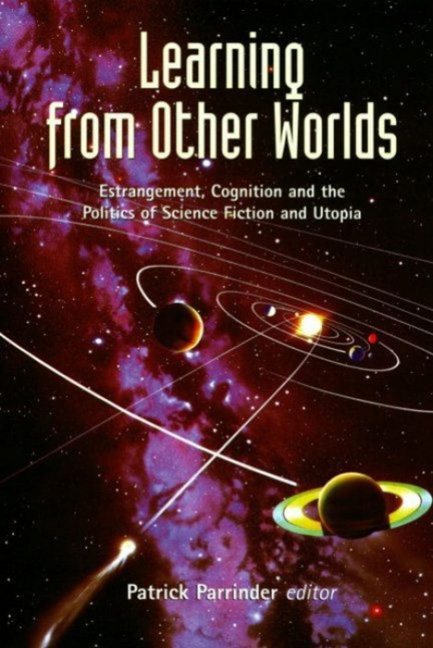Book contents
- Frontmatter
- Contents
- Acknowledgements
- Contributors
- Introduction: Learning from Other Worlds
- Part I Science Fiction and Utopia: Theory and Politics
- Part II Science Fiction in its Social, Cultural and Philosophical Contexts
- From the Images of Science to Science Fiction
- Estranged Invaders: The War of the Worlds
- ‘A part of the … family [?]’: John Wyndham's The Midwich Cuckoos as Estranged Autobiography
- Labyrinth, Double and Mask in the Science Fiction of Stanislaw Lem
- ‘We're at the start of a new ball game and that's why we're all real nervous’: Or, Cloning—Technological Cognition Reflects Estrangement from Women
- ‘If I find one good city I will spare the man’: Realism and Utopia in Kim Stanley Robinson's Mars Trilogy
- Afterword: With Sober, Estranged Eyes
- Darko Suvin: Checklist of Printed Items that Concern Science Fiction (with Utopian Fiction or Utopianism, and a Few Bordering Items)
- Bibliography
- Index
Labyrinth, Double and Mask in the Science Fiction of Stanislaw Lem
from Part II - Science Fiction in its Social, Cultural and Philosophical Contexts
- Frontmatter
- Contents
- Acknowledgements
- Contributors
- Introduction: Learning from Other Worlds
- Part I Science Fiction and Utopia: Theory and Politics
- Part II Science Fiction in its Social, Cultural and Philosophical Contexts
- From the Images of Science to Science Fiction
- Estranged Invaders: The War of the Worlds
- ‘A part of the … family [?]’: John Wyndham's The Midwich Cuckoos as Estranged Autobiography
- Labyrinth, Double and Mask in the Science Fiction of Stanislaw Lem
- ‘We're at the start of a new ball game and that's why we're all real nervous’: Or, Cloning—Technological Cognition Reflects Estrangement from Women
- ‘If I find one good city I will spare the man’: Realism and Utopia in Kim Stanley Robinson's Mars Trilogy
- Afterword: With Sober, Estranged Eyes
- Darko Suvin: Checklist of Printed Items that Concern Science Fiction (with Utopian Fiction or Utopianism, and a Few Bordering Items)
- Bibliography
- Index
Summary
You don't really think that I would have wasted so much effort and been so stubborn in pursuing my task, had I not with my own unsure, shaking hand prepared the labyrinth along which to travel, arranging my departures, revealing secrets, going deeper and deeper in search of landmarks which would shorten or change my route—a labyrinth in which I could have gotten lost and appeared before the eyes of those I will never meet again. Certainly I am not the only one writing in order not to reveal my face. Don't ask me who I am, and don't ask me to stay the same.
Michel Foucault, The Archeology of KnowledgeStanislaw Lem is, above all, a writer of epistemological themes. The process of human cognition is the meta-story or meta-plot of all of his science fiction. This plot, as a rule, manifests itself in Lem's works in the form of ‘wandering in a labyrinth’: the travels of human reason in the labyrinth of a ‘cosmic situation’ in the wider sense. There is always some kind of enigma hidden in the depths of such a labyrinth. It is, in the words of Paolo Santarcangeli in The Book of the Labyrinth, ‘maybe a Beast, maybe a Hidden Treasure’ (9)—this remains unknown, for the inhabitant of the labyrinth invariably appears before humanity in a terrible mask which hides his face. More often than not this is the mask of the Double. In other words, Stanislaw Lem is a poet of the labyrinth, doubleness and the mask.
- Type
- Chapter
- Information
- Learning from Other WorldsEstrangement, Cognition, and the Politics of Science Fiction and Utopia, pp. 178 - 192Publisher: Liverpool University PressPrint publication year: 2000

